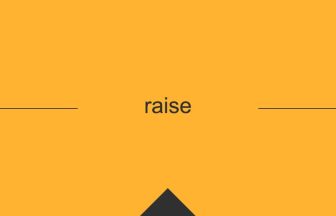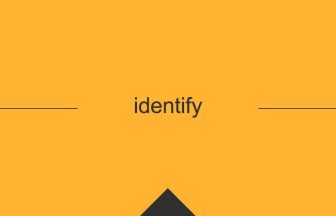定義 / Definition
[noun]
・a person who is a father or mother
[verb]
・be or act as a parent to (a child).
— その他 例文 —
He lost his parents in a plane crash.
彼は飛行機事故で両親を亡くした
Where do your parents live?
あなたの両親はどこに住んでいますか?
My parents died many years ago.
私の両親は何年も前に亡くなりました。
It was good to visit my parents.
私の両親を訪ねてよかったです。
The parents were called to come pick up their children.
その両親は自分たちの子供たちを迎えに来るように呼び出されました。
Do you get along well with your parents?
あなたは両親とうまくやっていますか?
I don’t know where my parents went.
私の両親がどこへ行ったのか私は知りません。
Her parents are divorced.
彼女の両親は離婚しています。
I’d like you to meet my parents.
私はあなたに私の両親に会って欲しいです。
Please have your parent or guardian call us.
あなたの親または法定後見人に私たちに電話をしてもらってください。
I wish I was able to do more for my elderly parents.
私の年とった両親のために、私はもっと役立てればなあ。
I wish I could have met your parents.
私はあなたのご両親に会えればよかったのになあ。
It is important for parents to be patient.
親たちにとって忍耐強いことは大事です。
Would you consider being a foster parent?
里親になることを考えてもらえますか?
The parents were yelling at the coach.
親たちはコーチにどなっていました。
My parents got divorced.
私の両親は離婚しました。
If he were my brother, I wouldn’t tell our parents what he did.
もし彼が私の兄弟なら、私は私たちの両親に彼がしたことを伝えないのになあ。
I wish my parents had had a chance to visit here in our new house and meet my family.
私の両親が私たちの新居のここを訪れて、私の家族に会う機会を持っていたらよかったのになあ。
The children didn’t know when their grandparents were arriving so they kept asking their parents.
子供たちはおじいさんとおばあさんがいつ到着するのかわからなかったので、両親に何回も聞きました。
The best parents get their children to do what they want using love, kindness and guidance, not fear and control.
最良の両親は、恐怖や支配ではなく、愛、優しさ、そして助言を用いて、彼らの子供たちが彼らの望むことを行うようにします。
The law of dominance states that if you cross a parent with a dominant character with a parent with a recessive character, only the dominant character appears in the first offspring.
優性の法則は、優性の形質を持つ親と、劣性の形質を持つ親をかけあ わせると、子の代では優性の形質だけが現れることをいう。
![英語・英会話の効果的な学習法|PM English[全無料] 英語・英会話の効果的な学習法|PM English[全無料]](https://pm-school.info/english/wp-content/uploads/2021/11/logot.png?1770961720)
















![中学英語やり直し[中学英文法 基礎確認問題]](https://pm-school.info/english/wp-content/uploads/2023/09/kiso-1-150x150.jpg)
![中学英語やり直し[中学英文法の基礎確認問題]](https://pm-school.info/english/wp-content/uploads/2023/09/kisokakunn-150x150.jpg)
![中学英語やり直し[関係代名詞と接続詞のthatの違い]](https://pm-school.info/english/wp-content/uploads/2023/09/kankei-setuzoku-150x150.jpg)
![中学英語やり直し[中学英語の復習問題]](https://pm-school.info/english/wp-content/uploads/2023/09/kiso-150x150.jpg)
![中学英語やり直し[基礎英文法の復習問題]](https://pm-school.info/english/wp-content/uploads/2023/09/fukusyuumondai-150x150.jpg)









![[列車 電車]に関わる英語の表現を学ぼう](https://pm-school.info/english/wp-content/uploads/2022/11/train-150x150.jpg)



![英語・英会話の効果的な学習法|PM English[全無料] 英語・英会話の効果的な学習法|PM English[全無料]](https://pm-school.info/english/wp-content/uploads/2021/11/logom.png?1770961720)